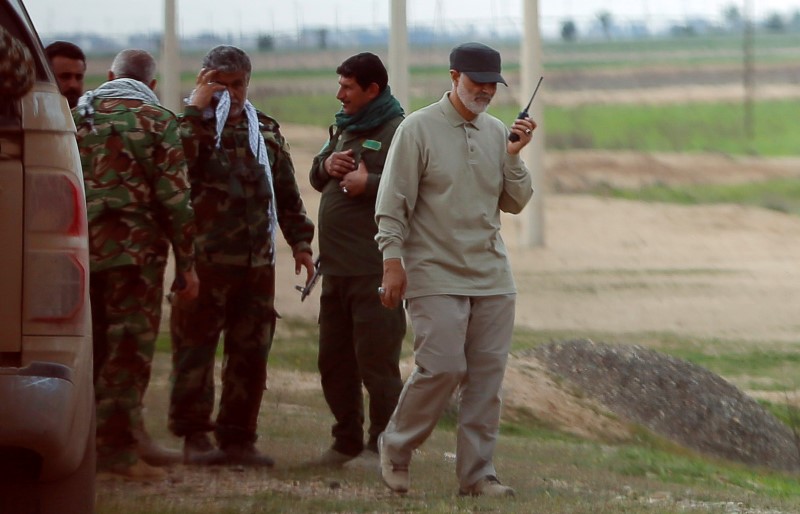By Lidia Kelly and Parisa Hafezi
MOSCOW (Reuters) - Iranian Major General Qassem Soleimani has flown to Moscow for talks with Russia's military and political leadership to discuss the conflict in Syria and deliveries of Russian missiles, sources with knowledge of his trip said on Friday.
The main purpose of his visit was to discuss new delivery routes for future shipments of Russian S-300 surface-to-air missile systems, sources said, with one saying Soleimani wanted to talk about how Russia and Iran could help the Syrian government take back full control of Aleppo.
"General Soleimani travelled to Moscow last night to discuss issues including the delivery of S-300s and further military cooperation," a senior Iranian security official told Reuters.
Soleimani met both Russian President Vladimir Putin and Defence Minister Sergei Shoigu on Friday, one source said. A Kremlin spokesman said a meeting with Soleimani was not on Putin's schedule.
Asked about Soleimani's visit, the Iranian embassy in Moscow said it had no information about it.
The visit is likely to be seen as a sign that the tactical alliance struck up by Russia and Iran over Syria remains strong despite some reported differences over battlefield strategy.
Iranian media reported on Monday that Russia had delivered the first part of the S-300 missile system, starting to equip Tehran with technology that was blocked before it signed a deal with world powers on its nuclear programme.
Soleimani, the commander of foreign operations for Iran's elite Revolutionary Guards, flew to Moscow in July last year to help Russia plan its military intervention in Syria and forge an Iranian-Russian alliance to support Syria's President Bashar al-Assad.
He helped reactivate the stalled S-300 deal, which Russia had put on ice in 2010 under pressure from the West.
Russia, despite withdrawing some of its fast jets, still maintains a significant military presence in Syria providing air support, advice and training to the Syrian army.
A senior regional source told Reuters last year that Russia's military intervention in Syria was set out in an agreement between Moscow and Tehran that said Russian air strikes would support ground operations by Iranian, Syrian and Lebanese Hezbollah forces.
Iran has committed troops to help prop up the Syrian army, sometimes sustaining heavy losses, and Soleimani has been reported to be spending time in Syria where he is thought to have helped coordinate operations.
He was previously subject to an international travel ban by the U.N. Security Council with Washington designating the Quds Force, the unit of the Revolutionary Guards which Soleimani leads, as a supporter of terrorism.

That ban was rescinded earlier this year however when a nuclear deal between Iran and world powers was implemented, triggering sanctions relief for Tehran.
(Parisa Hafezi contributed reporting from ANKARA; Writing by Andrew Osborn; Editing by Christian Lowe and Giles Elgood)